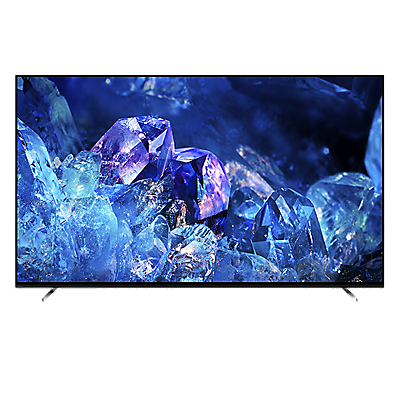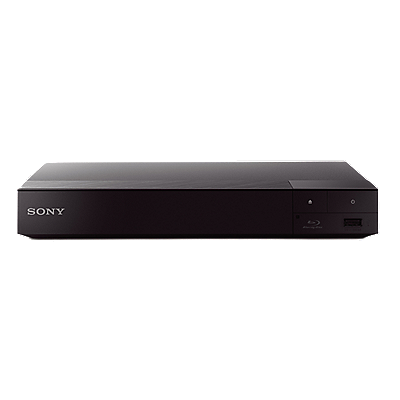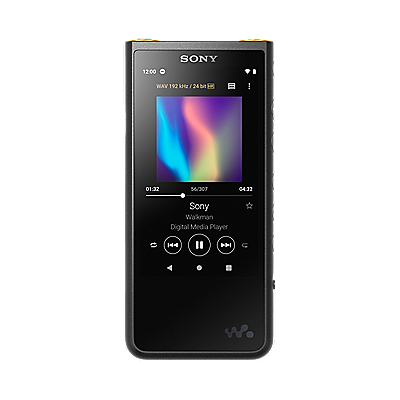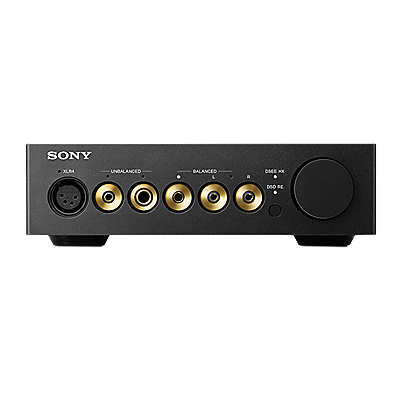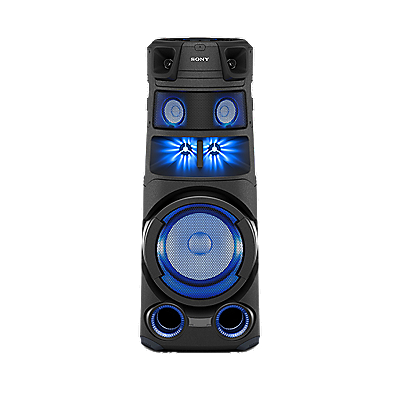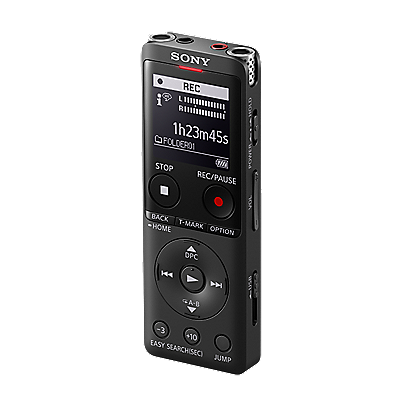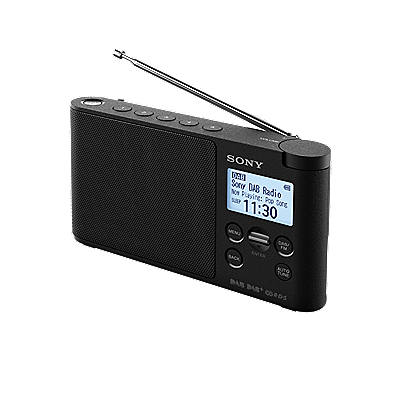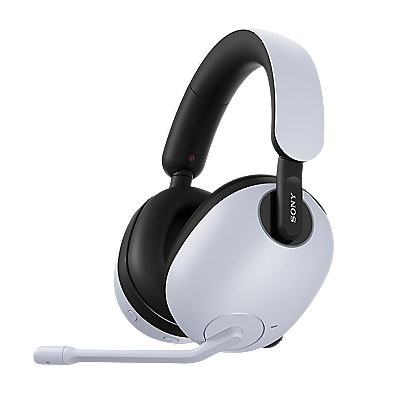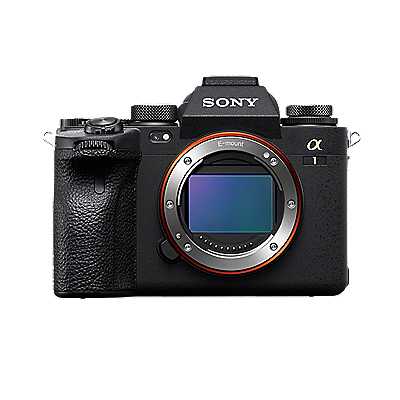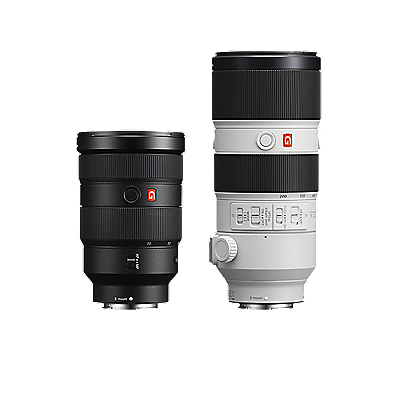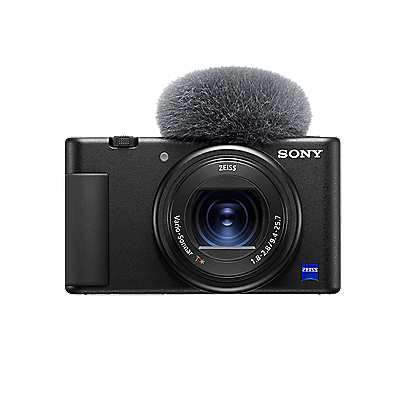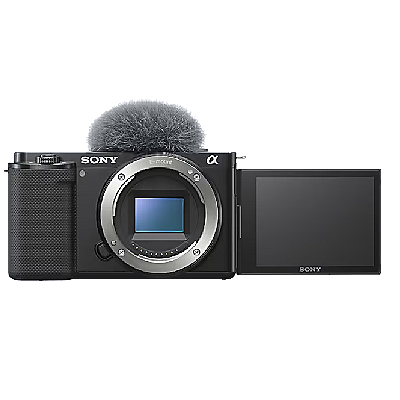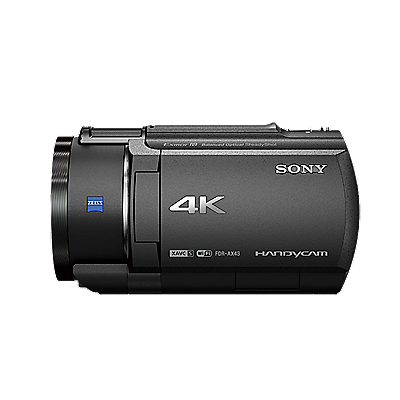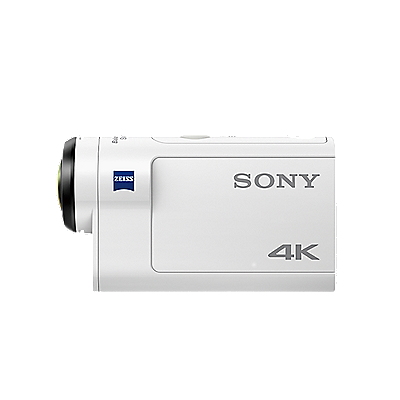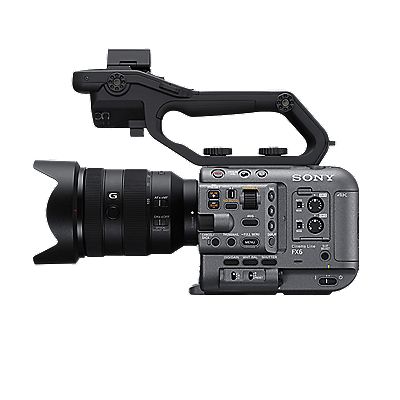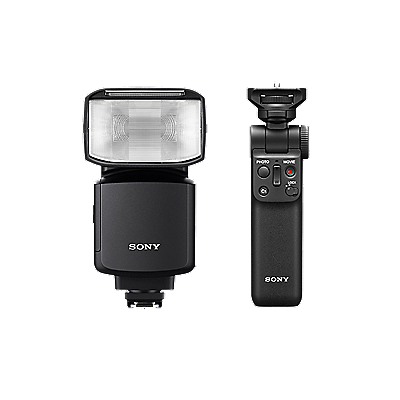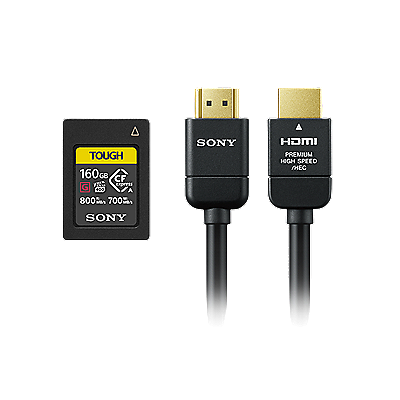
Available soon
Notify Meα1 II flagship for professionals
Available soon
Notify MePlease accept Youtube cookies to watch this video
Access your cookie preferences below and make sure to switch on the Youtube cookie under the 'Functional' section.
The α1 II gives users everything they need to achieve a higher capture success rate and more, including 50MP high resolution, AI-based subject recognition AF, high-speed continuous shooting, and an advanced workflow from capture to delivery that provides professionals with unrivalled efficiency and freedom.







The massive volume of data from the approximately 50.1 effective megapixel full frame Exmor RS™ image sensor is processed in real time by Sony’s BIONZ XR™ image processing engine. An advanced AI processing unit applies high-level subject recognition to reliably recognise a wide range of subjects. These state-of-the-art technologies come together to make it easy to capture even the most challenging subjects in extraordinary resolution, with blackout-free viewing and full AF/AE tracking performance at up to 30 fps.

The α1 II features a dedicated AI processing unit that helps to recognise people more accurately based on human pose estimation, and also supports recognition of a wide range of subjects other than people, such as animals, vehicles and insects, with high accuracy. This results in a dramatic improvement in Real-time Recognition AF and Real-time Tracking capability, and higher overall AF performance.

Real-time Recognition AF has improved human eye recognition by approximately 30%, with human pose estimation improving recognition of subjects facing away from the camera, wearing sunglasses, or with the face obscured. Recognition of distant human subjects occupying only a small part of the frame has been notably improved, and subjects can be tracked better across occlusions.

A wider variety of subjects is now recognised for stills and movies, with a new [Auto] mode letting the camera select. Recognition of animals overall is improved by approximately 30%, with eyes of some small animals added, and the eyes, heads and faces of animals like dogs and cats recognised. Recognition of birds is improved by 50%.

Fast Hybrid AF provides 759 phase-detection points for tenacious tracking and pinpoint focusing, now with adjustable tracking response speed, useful for example in bird photography, and in light levels down to EV-4.0 in AF-S mode.

XL and XS focus area spot sizes are now available as well as L, M, and S. XS can be useful to avoid focusing on foreground objects such as branches. It is also possible to create a custom focus area of specified size and aspect ratio.

Selectable release time lag modes are available via the [Release Lag] / [Start Display] menu. With blackout occurring on only the first image in a continuous burst, [Fastest Release/On] provides the shortest possible release time lag, while [Stable Release/On] minimises variations in release time lag making it easier to release the shutter at the intended moment. The default [Auto/Off] setting gives no blackout when shooting is started.

High-speed continuous shooting at up to 30 fps with full AF/AE tracking is possible at 50.1 MP resolution, with up to 120 AF/AE calculations per second. Blackout-free shooting with no loss of viewfinder image allows seamless framing and capture of the subject as if viewed with the naked eye.

Pre-capture retroactively captures moments that occurred before the shutter was released, without compromising resolution, even when shooting continuously at up to 30 fps with selectable recording time options. Continuous Shooting Speed Boost can temporarily change the burst speed. Both features reduce the chance of missing that vital instant.

Sony's extensive high-performance G Master line work with the 50.1 megapixel Exmor RS image sensor and BIONZ XR image processing engine to create deep, lifelike, high-resolution rendering. The sensor’s high pixel count means that resolution is still a very impressive 21 megapixels when shooting in APS-C mode or cropping to APS-C size after shooting.

Compressed RAW images can be continuously shot at up to 30 fps. For easier handling, as well as L, Lossless Compressed RAW, JPEG and HEIF images are also available in M and S sizes with the same numbers of pixels whether shot in full-frame or APS-C mode, enabling seamless mode switching while maintaining resolution.

Feedback from professionals has been taken into account to create noise reduction that is highly effective without sacrificing image detail, so users can shoot clear images of indoor sports at mid to high sensitivity without hesitation. Dynamic range at lower sensitivities is a wide 15 stops for smooth, realistic gradations.
[1] α1, ISO 6400, 1/1600 s, F2.8
[2] α1 II, ISO 6400, 1/1600 s, F2.8

Exposure and colour reproduction are notably improved compared to the α1, with exposure optimised for detected faces in stills and movies, and exposure stability improved by approximately 20% even when the face is backlit, over-illuminated in sunlight, or not facing the camera. White balance is accurate even for subjects in shade.

A high-precision image stabilisation unit, advanced gyro sensors, and optimised algorithms detect and correct camera shake, for a groundbreaking 8.5-step effect at the centre and 7.0-step at the periphery, and capture of fine details even when shooting handheld. Synchronisation with compatible lenses provides further blur control even at telephoto focal lengths.
[1] Yaw [2] Roll [3] Pitch

Two composite RAW shooting modes are available. The NR Shooting Settings mode captures between 4 and 32 RAW images that can be composited to create a full-resolution image with very low noise even at mid to high sensitivities. Pixel Shift Multi Shooting captures 4 or 16 pixel-shifted images that are composited to achieve overwhelmingly high resolution in a single image. In both cases the compositing operations are performed using Sony’s Imaging Edge Desktop™ PC application.
[1] Single RAW image, ISO 12800
[2] NR composite RAW (32 images), ISO 12800

Real-time Recognition AF utilises advanced AI-based human pose estimation technology that recognises and tracks not just eyes, but body and head position for human subjects with high precision. The range of subjects recognised with AI assistance, for both movies and stills, has been expanded relative to the α1, and now includes birds in movies for example. Other subjects are acquired and tracked in real time by processing colour, pattern, and spatial data.

4K (3840 x 2160) movies can be cropped and edited from 8K source footage with overwhelming resolution from 8.6K oversampling. 8K 4:2:2 10-bit XAVC HS recording with optional Full HD proxy is available, as are 4K recording in XAVC HS, S, or S-I formats in full-frame, or Super 35mm oversampled from 5.8K with full pixel readout and no pixel binning. XAVC S-I allows recording at up to 600 Mbps for outstanding image quality.

4K can be recorded at up to 120p right in the camera. 4K footage can be played back in up to 5x slow motion. The Slow & Quick Motion (S&Q) mode makes it convenient to play recorded footage back at slow or high speed in the camera. Full HD footage recorded at 240 fps offers even greater range: up to 10x slow motion (24p) to create impressive sports movies, for example. The frame rate setup menu allows intuitive selection of frame rates.

The S-Log3 gamma curve emphasises gradation characteristics from shadows to mid-grey. Minimum ISO when shooting S-Log3 is 800, while the expanded ISO range is 200 - 640. Compared to the α1, detail reproduction has been improved and matching with S-Log3 output from Sony’s cinema cameras is easier. User LUTs can also be imported into the camera for preview.

In addition to standard mode, Active Mode combines a precision image stabilisation unit and gyro sensor, while Dynamic active Mode adds electronic stabilisation for an additional approximately 30% effect, enabling stable recording even when the user is jogging. Auto Framing tracks and crops AI-recognised subjects and automatically adjusts shot composition, while Framing Stabilizer automatically keeps the subject in the same location within the frame when the camera operator is moving alongside.

Focus breathing compensation reduces focus breathing when shooting movies. Sony’s Clear Image Zoom technology automatically maintains angle of view through focus changes. Breathing metadata can also be used with the latest Catalyst Browse/Catalyst Prepare/ Catalyst Prepare Plugin software application during post production.

AF Assist for temporary switching to manual focus, focus peaking display, and AF transition speed and sensitivity settings all help the user when shooting movies. Focus Map overlays a visual depth-of-field map on the live view display. Real-time Recognition AF, Real-time Tracking, and Focus Area are now available during digital zoom and Clear Image Zoom operation.

The 4-axis multi-angle monitor can be positioned for optimal viewing in horizontal or vertical orientation. The extended monitor can be tilted upward by approximately 98° and downward by approximately 40° to the camera back, and sideways by a full 180°. The hinge is unobtrusive but robust. The large 3.2 type 2.1 million dot display panel is touch sensitive, has a wide colour gamut, and is designed for clear outdoor viewing.

The improved grip ergonomics ensure comfortable and stable shooting over long sessions. A C5 custom button has also been added, and the grip design is replicated for prolonged vertical shooting with the optional VG-C5 Vertical Grip, which additionally offers extended battery life over the previous model.

The α1 II is supplied with two viewfinder eyepiece cups: the standard FDA-EP19 and the deeper FDA-EP21 which enhances viewing clarity by effectively blocking extraneous light. The soft, close-fitting material and design enhance viewing comfort.

The supplied BC-ZD1 quick charger can simultaneously charge two NP-FZ100 batteries in approximately 155 minutes when used with an AC adaptor providing USB PD (Power Delivery). This charger is ideal for charging two batteries for use at events or in other applications that require continuous operation over extended periods of time.

The My Menu feature allows menu items to be added to a custom favourites menu with a simple long-press or by pressing the Delete button. New options have also been added to the Function (Fn) menu, including recording folder selection and new folder creation.

It is now possible to display the contents of two memory cards when both media slots are selected for playback, allowing seamless playback of all images without having to switch cards. Playback parameter filtering can significantly improve on-site workflow efficiency.

Images shot in continuous bursts or using the interval timer function can be defined as “groups,” with the first image displayed to identify the group for quick switching between groups, boosting workflow efficiency. [Image Jump Setting] displays just the lead images during playback, allowing quick, efficient location.

If set in advance, a rating can automatically be applied to the first image in continuous burst or Pre-Capture groups, or a divider image inserted before the first image in groups, enabling quick scrolling through and location of groups using the custom dial during playback.

A dedicated voice memo microphone is built into the camera’s rear panel, making it easy to record clear voice memos even in noisy environments. Voice memos can be transferred to an FTP server along with the corresponding images.

IPTC (International Press Telecommunications Council) metadata can be added to still images. IPTC information can be written to IPTC metadata presets and loaded into the camera via a memory card. The α1 II can internally store up to 20 presets that can then be quickly selected when needed, for example at multi-sports events.

Wired LAN connectivity allows stable, high-speed transfer of huge amounts of still and movie data at up to 2.5 Gbps to an FTP server. FTPS (File Transfer Protocol over SSL/TLS) is supported for secure transfer. Up to 10 sets of FTP transfer settings can be saved to and loaded from a memory card.

Transfer & Tagging is a smartphone application that can speed up still-image workflows for professional sports and news photographers, allowing background FTP transfers via a smartphone as well as fast tag/caption attachment.

Remote Camera Tool is a software application that allows PC Remote (tethered) shooting via wired LAN, and can be used to change camera settings and shoot images. It is now possible to connect multiple cameras with autofocus and shutter operation synchronised to the main camera.

Creators' Cloud is a platform that supports creative work from shooting to production by combining Sony's advanced camera technology and the cloud. It's also a place for discovery and collaboration with other creators around the world. Explore web, mobile, and PC-based apps providing efficient solutions that integrate cameras with shooting and production apps and services.

Creators' App is a smartphone application that lets Sony's cameras connect to the cloud, enhancing functionality and convenience for shooting and sharing.

Sony’s Road to Zero environmental plan aims at achieving a zero environmental footprint by 2050 through creativity and advanced technology. Our recyclable, durable, high-quality SORPLAS™ material used in camera bodies and other components requires no non-recyclable resources and does not compromise performance or functionality, replacing approximately 426 tons of virgin plastic in our digital cameras and digital video cameras over approximately the past 12 years. Our facility in Thailand where this and other imaging products are manufactured runs on 100% renewable energy.
Sony is working towards the use of non-plastic packaging materials that provide ample protection against shock and impact. The α1 II is the first high-end α-series product to be shipped in a plastic-free package made of an “Original Blended Material” that can be recycled as paper. Plant-based non-woven fabrics are used for product bags, further reducing the use of plastics and minimising environmental stress.


Accessibility features such as Screen Reader that reads menu screen text aloud, Enlarged Menu Display, and others make it easier for everyone to enjoy shooting and playback using the α1 II. Furthermore, advanced features like AI-based Real-time Recognition AF for a wide range of subjects, intuitive touch operation for subject tracking, and many more make the joys of photography and moviemaking available to the widest possible range of users.
Specifications & Features
- NUMBER OF PIXELS (Total)
- Approx. 50.5 megapixels
- SENSOR TYPE
- 35mm full frame (35.9 x 24.0 mm), Exmor RS CMOS sensor
- VIDEO DATA FORMAT
- MPEG-4 AVC/H.264, MPEG-H HEVC/H.265
- VIDEO RESOLUTION
- 3840 x 2160 (30p), 3840 x 2160 (25p), 2560 x 1440 (30p), 2560 x 1440 (25p), 1920 x 1080 (30p / 60p), 1920 x 1080 (25p / 50p), 1280 x 720 (30p / 60p), 1280 x 720 (25p / 50p)
- PROTOCOL
- RTMP, RTMPS, SRT
- ISO SENSITIVITY
- Still images: ISO 100 - 32000 (expandable to ISO 50 - 102400), AUTO (ISO 100 - 12800, selectable lower limit and upper limit), Movies: ISO 100 - 32000 equivalent, AUTO (ISO 100 - 12800, selectable lower limit and upper limit)
- AUDIO DATA FORMAT
- AAC-LC 2ch (16bit 48 kHz)
- Battery Life (Still Images)
- Approx. 420 shots (Viewfinder) / Approx. 520 shots (LCD monitor) (CIPA standard)
- NUMBER OF PIXELS (EFFECTIVE)
- Still images: Approx. 50.1 megapixels max.,Movies: Approx. 42.0 megapixels max.
- Monitor Type
- 8.0 cm (3.2-type) type TFT
